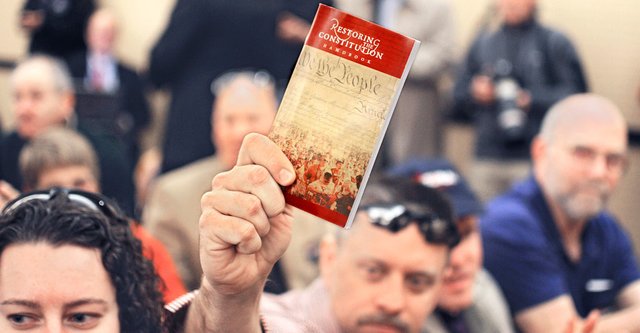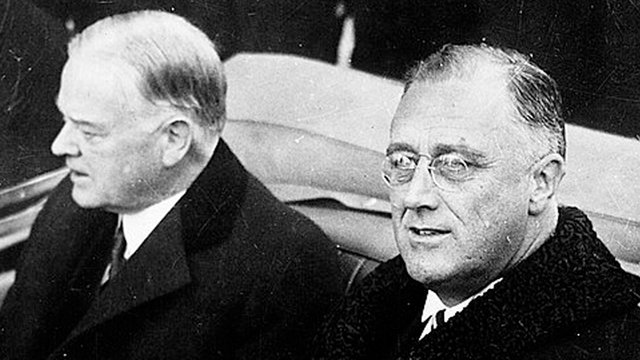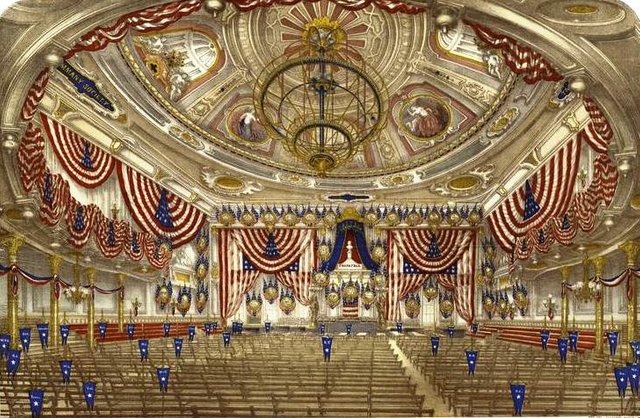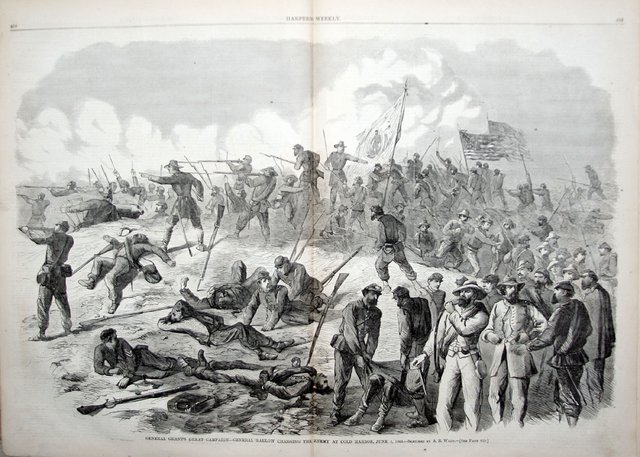
In his reprised role as beloved breaker of difficult stories and pundit-darling, Carl Bernstein has popularized a phrase I have been using for more than a year to describe the active violence (without shooting), condemnatory media, and increasing divide between the political parties: Cold Civil War. By his account, this cold civil war is a young phenomenon, brought about by a divided mainstream media on the subject of the Russian collusion investigation. But to consider it as young as the Trump Administration is to ignore the facts of history which have brought us here, and the abdication of responsibility by Congress which gave way to an United States which, to the likes of James Madison and Thomas Jefferson, would be considered tyrannical and unrecognisable.
It is not to say he is wrong; though distinctly taken by embellishment in his recent publications regarding the President, his hammer finds the right nail in his description of politics in the modern day. We, as a nation, have not been this divided in more than 150 years, but it is in the last 100 that the means by which we would be divided were created. It was not the fault of any one regime, nor any specific act of legislation, despite the desire of one regime to point fingers at another; both parties and their figure-heads at each point bear some responsibility in this, the development and expansion of government toward unlimited control and power. Many love to point the finger at the Progressive Era, from Teddy Roosevelt to Franklin Delano Roosevelt, but it was a willing Congress at the hands of “brain trusts,” elites who considered themselves above the common man, who laid out the plans which eroded the binding chains built into our Constitution for the purpose of limited government.

Herbert Hoover and Franklin Delano Roosevelt
Consolidated Executive Power
The Federal Reserve Act was no action overstepping the role of the Presidency; rather, it was penned and produced entirely within Congress to give away their Constitutionally-mandated responsibility to coin money to a private institution categorized as an extension of the executive branch. The Federal Election Commission, likewise, may have been resultant of FDR’s breaking of the two-term standard, but the creation of such an agency under the executive branch was an act of Congress abdicating their Article I responsibilities. Every action taken in the New Deal, for what little they served in producing the recovery needed following the Great Depression, was passed from FDR’s brain trust to the Congress and rubber-stamped, often without even debate, to give away their power to the executive branch and, in turn, make their lives that much easier.
This consolidation of power, though, was seen as thoroughly unconstitutional by the Republicans of the 1950’s and 1960’s, questioning whether it was in the best interests of the nation to be doing precisely what Publius warned against as he explained the balance of powers in Federalist No. 47. These agencies, now growing and spreading with each generation, and serving broader and broader purposes, were becoming an unaccountable fourth branch of government, unelected and immune to the influences of people. Their regulations replaced the legislative branch in its singular job of legislating, and even left them independent of oversight by the legislative bodies which had created them.
The cold civil war in which we find ourselves did not begin last year, but more than 50 years ago, at the raising of red flags regarding this consolidation of power in the hands of agencies purportedly part of the executive branch, but effectively a branch of their own. A debate began which challenged the new interpretive guidebook to the Constitution known as the “living Constitution,” which did all in its Progressive interests to undermine the intentions of the “original Constitution” on which the nation was founded. The Progressives in Congress, encouraged by Progressives both Republican and Democrat voted in as President, set the stage for the world we find ourselves in today, with an administrative state holding unlimited governmental power and influence over voters for what they have given them out of the public purse.

Tammany Hall, 1868, the home of purchased immigrant voters.
Conflict and Corruption
This was only made worse by the practice which originated with Tammany Hall, in which immigrants and new arrivals had their votes bought by means of taxpayer-funded gifts of homes and jobs in familiar cultural ghettos. This practice goes on today with far less concealment, through the granting of IDs to illegal immigrants in California, Florida, and even New York, creating a bulwark of votes and tips the scales against the rightful citizens of this nation. We are a nation of immigrants, yes, but immigrants naturalized and adapted to the culture shared amongst all Americans – we inherently disagree on a great many things, but agree on civility, liberty, and our Constitution.
Or at least, we did.
This cold civil war is not one between North and South, or Republican and Democrat, or Coastal and Inland, but rather the same embroiled war which has been fought from the beginning of this nation. From our very first days beyond 1776, we have grown and developed through the tempering flames and moulding hammer-strikes of civil conflict – Federalist vs Anti-Federalist, Original Colonies vs New States, North vs South, Elite vs Common Man. And elite vs common man, this can be considered the most descriptive of every generation of civil conflict.
Whether it be Jefferson, with his worship of the common man from the secluded walls of his library, against James Madison, with his starry-eyed adoration of the other founding fathers with which he grew up taking notes in their debates,
— or Franklin Delano Roosevelt, with his brain-trust of elite thinkers each putting the pieces together for a presidential dictatorship no one would wish to acknowledge, against Herbert Hoover, whose experience in so many agencies of government left him wishing only to leave the recovery of the nation to the “natural medicine” of economies,
— or Barack Obama, whose complete authoritarian exercise of post-New Deal executive powers granted Congress the very reprieve from the gruelling hard work of compromise they desired, against Donald Trump, whose destruction of regulation and games of chess against Congress have demanded they fulfil their Constitutional obligations of legislating —
It always returns to the same conflict which, through hearing both sides and pursuing that hard work of compromise, that our nation has grown hardier, stronger, into the beacon of liberty and justice which people from across the world seek a better life. We are a nation of cold and civil war; it is through agreeing to disagree that we have become what we are today — for better or for worse.

The Battle of Cold Harbor, 1864
Two Constitutions: the Original and the Living
The problem of the Two Constitutions must be addressed. Will we pursue the “living Constitution,” which seeks to redefine each word as the Progressives see fit in order to overrule the interests of the founding fathers? Or will we pursue the “original Constitution” and the intents of the founding fathers, for the sake of keeping government restrained and limited? If we do the former, can we truly call ourselves a United States? After all, making such a decision would be the dis-uniting factor which could bring about secession – or worse. But if we do the latter, are we capable of unravelling the constricting red boa of bureaucracy which strangles our people as a whole for the sake of its continued and empowered existence?
There is no easy answer to these questions. And given Congress’ reticence to reform itself, the answers will have to come from without, whether through open and impassioned debate or by repeated pressure placed on Congress with each election. But the snake rots from the head; and our rotting snake has 535 heads which may or may not need cutting off.
Postscript: This essay was written from within a homeless shelter, and published from "borrowed" WiFi outside a pub, as the author currently has no other way to do it. If you've enjoyed this piece and others, please consider supporting the work on Patreon, or with cryptocurrency. Even the smallest amount helps, and it keeps the content flowing.
This article was originally published at: https://sevvie.ltd/politics/the-growing-heat-of-an-old-cold-civil-war/
Curated for #informationwar (by @commonlaw)
Our purpose is to encourage posts discussing Information War, Propaganda, Disinformation and other false narratives. We currently have over 8,000 Steem Power and 20+ people following the curation trail to support our mission.
Join our discord and chat with 200+ fellow Informationwar Activists.
Join our brand new reddit! and start sharing your Steemit posts directly to The_IW!
Connect with fellow Informationwar writers in our Roll Call! InformationWar - Contributing Writers/Supporters: Roll Call Pt 11
Ways you can help the @informationwar
Downvoting a post can decrease pending rewards and make it less visible. Common reasons:
Submit